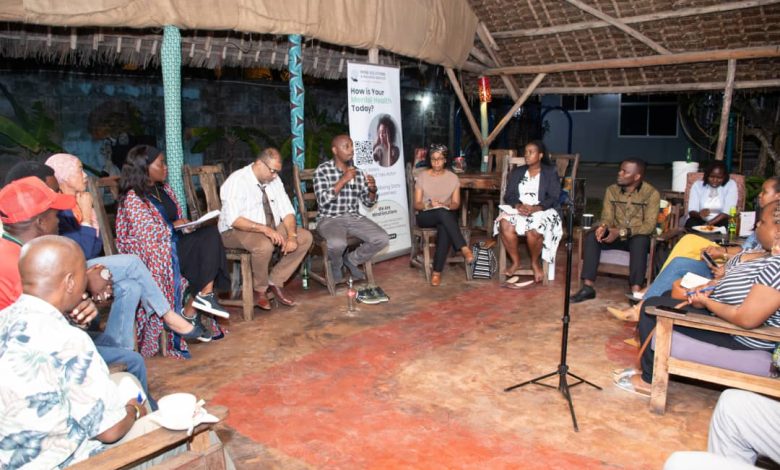USU storytelling platform sparks new culture of healing

DAR ES SALAAM: ON the evening of Thursday, a quiet room in Dar es salaam came alive with honesty, courage and empathy as Unconventional Stories Unmasked (USU) hosted its fourth episode under the theme ‘The Healing Continues’.
The event drew an intimate audience yet again proving that Tanzanians are yearning for safe, healingcentred spaces where truth is spoken without fear and pain is transformed into purpose.
At its heart, USU is not just another event. it is a movement Tanzania’s first live, unfiltered storytelling platform devoted to mental health, trauma, addiction and resilience. By combining personal storytelling, psychological insight and interactive dialogue, usu aims to dismantle stigma and foster empathy through the simple, powerful act of truth-telling.
The fourth edition featured two brave speakers: a recovering alcoholic and a recovering addict. Both opened up about their long and often painful journeys of healing through the 12-step programme a globally recognised approach that has helped millions find freedom from addiction.
Through raw and moving storytelling, they revealed how honesty, accountability and community became their lifelines. they spoke about sponsors and mentors, the unsung heroes who guide others through recovery and highlighted the availability of free peer-support programme like alcoholics anonymous (AA) and narcotics anonymous (NA) across Tanzania.
One of the storytellers, calm and introspective, shared how sobriety brought clarity and peace. the other, lively and animated, recounted moments of despair and redemption with humour and hope.
Together, they created a powerful emotional balance, their contrasting energies reflecting the diversity of human healing. The easy, natural switch between Swahili and English made the evening feel authentically Tanzanian, inclusive and deeply personal.
During the interactive Q&A session, audience members asked heartfelt questions about relapse, emotional triggers and the role of families in recovery. the resounding message of the night was clear, empathy not judgment is what drives healing.
Reflecting on the two storytellers’ journeys, resident psychologist, Ms Mary Mushi said that true change begins with readiness and self-awareness.
“We are not advocating for perfection, we are advocating for self-awareness and understanding and how to look after yourself,” she said.
Ms Mushi said addiction is rarely the root problem but rather a symptom of deeper emotional pain wounds that may stem from loneliness, trauma, or unmet needs. She encouraged the audience to pause and reflect: “what am I trying to numb? what peace am I seeking?”
Healing, she explained, is not about sudden transformation but about small, consistent steps taken with compassion. “It’s about forgiving yourself, letting go of blame and finding purpose,” she said.
Ms Mushi emphasised that even though pain and challenges are inevitable, awareness and responsibility are where healing begins.
she urged Tanzanians to build inner resilience through community support, empathy and meaningful connection.
Adding depth to the discussion, psychologist, Mr Alex Kamugisha explored empathy as a vital tool in supporting those struggling with psychological or emotional distress. “Empathy is the key; it allows us to see beyond right and wrong and to understand situations from another person’s perspective,” he said.
He explained that many people respond to others’ struggles with judgment, not understanding often pushing the suffering individual further into isolation and shame.
“Instead of judging,” he said, “communicate understanding. let the person know you see and feel what they are going through. that simple act can open the door for them to seek help and begin their healing journey,” he said.
Mr Kamugisha underscored that empathy does not replace professional help but rather complements it. for individuals showing clinical or psychological symptoms, referral to therapy or counselling remains essential.
He said that empathy helps people develop deeper self-awareness a critical step toward healing and long-term recovery.
“Many people have not yet developed a deep understanding of their challenges, empathy helps build that awareness, which is the first step toward transformation,” he said.
Since its launch, USU has become a transformative space for Tanzanians seeking healing and connection.
Each event features two storytellers who share their unfiltered life journeys; analysis from psychologists and behavioural experts; open Q&A sessions that foster dialogue; and bilingual discussions ensuring everyone feels included.
There is also an audience reflection segment, where participants are invited to share their thoughts, tears and insights turning listeners into active contributors to collective healing.
More than 250 people have attended USU events in person, with many more engaging through the USU dream team WhatsApp support group, where conversations and mutual support continue long after the event ends.
The movement also aligns with World Mental Health Day, whose 2025 theme focused on ‘Access to Mental Health Services’. by providing a free, nonjudgmental space for honest conversations, USU is directly contributing to this global cause bringing mental health awareness into local community spaces.
Looking to the future, USU CEO, Ms Allie Iddi, revealed ambitious plans to expand the initiative through a national storytelling tour and digital live streaming in 2026, reaching schools, universities and workplaces across Tanzania.
“USU is proof that when we make space for people’s truths, we make space for their healing, our next step is to take this platform on the road, so that healing becomes a community habit,” she said.
ALSO READ: Policy reforms needed for youth agribusiness
She emphasised that USU’s mission is to normalise open conversations about mental health, addiction and life’s hardships transforming shame into strength and isolation into connection.
“We envision a Tanzania where stories of struggle become stories of strength where communities are grounded in empathy, awareness and collective healing.”
At a time when mental health conversations are still met with silence or stigma, platforms like usu are rewriting the narrative. by giving people permission to speak openly and be heard without shame, they are planting seeds of compassion in a society that often equates pain with weakness.





